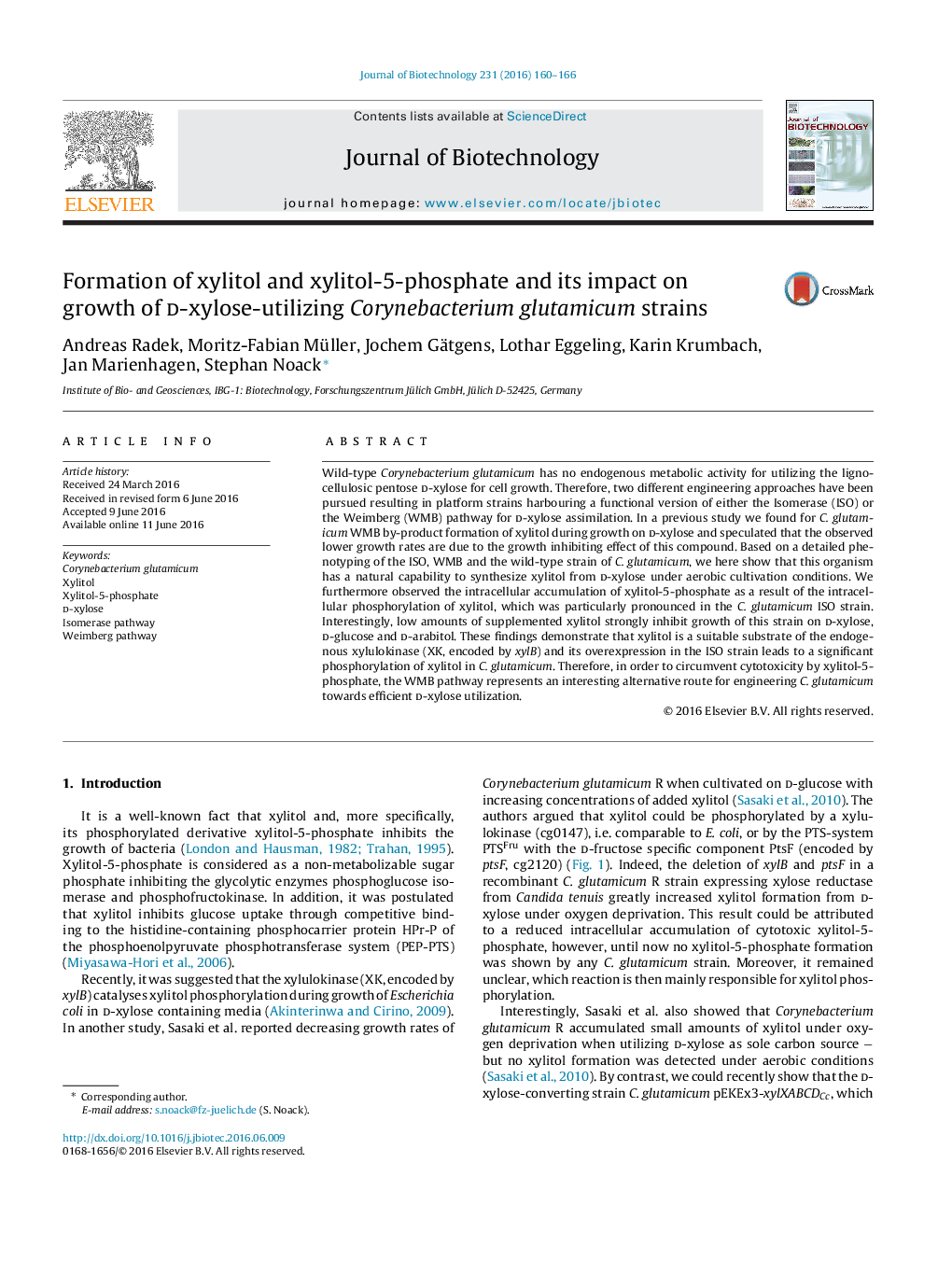| کد مقاله | کد نشریه | سال انتشار | مقاله انگلیسی | نسخه تمام متن |
|---|---|---|---|---|
| 22676 | 43369 | 2016 | 7 صفحه PDF | دانلود رایگان |

• Corynebacterium glutamicum accumulates extracellular xylitol during aerobic growth on d-xylose containing substrates.
• Intracellular xylitol is partly converted to cytotoxic xylitol-5-phosphatein C. glutamicum pEKEx3-xylAXc-xylBCg (ISO).
• Low amounts of supplemented xylitol strongly inhibit the growth of the ISO strain on d-xylose, d-glucose and d-arabitol.
• Xylitol is a suitable substrate of the endogenous xylulokinase(encoded by xylB).
• The Weimbergroute, operating independently from xylulokinase activity, could be an effective substitute towards efficient D-xylose utilization in C. glutamicum.
Wild-type Corynebacterium glutamicum has no endogenous metabolic activity for utilizing the lignocellulosic pentose d-xylose for cell growth. Therefore, two different engineering approaches have been pursued resulting in platform strains harbouring a functional version of either the Isomerase (ISO) or the Weimberg (WMB) pathway for d-xylose assimilation. In a previous study we found for C. glutamicum WMB by-product formation of xylitol during growth on d-xylose and speculated that the observed lower growth rates are due to the growth inhibiting effect of this compound. Based on a detailed phenotyping of the ISO, WMB and the wild-type strain of C. glutamicum, we here show that this organism has a natural capability to synthesize xylitol from d-xylose under aerobic cultivation conditions. We furthermore observed the intracellular accumulation of xylitol-5-phosphate as a result of the intracellular phosphorylation of xylitol, which was particularly pronounced in the C. glutamicum ISO strain. Interestingly, low amounts of supplemented xylitol strongly inhibit growth of this strain on d-xylose, d-glucose and d-arabitol. These findings demonstrate that xylitol is a suitable substrate of the endogenous xylulokinase (XK, encoded by xylB) and its overexpression in the ISO strain leads to a significant phosphorylation of xylitol in C. glutamicum. Therefore, in order to circumvent cytotoxicity by xylitol-5-phosphate, the WMB pathway represents an interesting alternative route for engineering C. glutamicum towards efficient d-xylose utilization.
Journal: Journal of Biotechnology - Volume 231, 10 August 2016, Pages 160–166